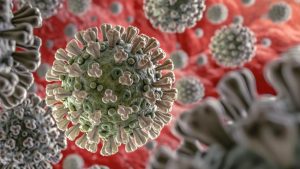 The recent outbreak of coronavirus in a skilled nursing facility in Washington has exposed the susceptibility of nursing home residents to this virus. News reports have indicated that the Washington facility was found to be understaffed with inadequate gear attempting to serve dozens of patients vulnerable to catching the virus. Those reports also indicate children and other relatives of patients in the facility have been attempting to sound the alarm about conditions in the facility for weeks.
The recent outbreak of coronavirus in a skilled nursing facility in Washington has exposed the susceptibility of nursing home residents to this virus. News reports have indicated that the Washington facility was found to be understaffed with inadequate gear attempting to serve dozens of patients vulnerable to catching the virus. Those reports also indicate children and other relatives of patients in the facility have been attempting to sound the alarm about conditions in the facility for weeks.
The arrival of the coronavirus in the United States has come at a time when we already have ongoing problems associated with caring for the American elderly, one of the country’s most vulnerable populations, especially as long-term care is frequently understaffed and underfunded. It is only be a matter of time before Southern California nursing homes and assisted living facilities will be impacted by the virus. Accordingly, these nursing facilities need to be adequately prepared to handle the virus and proactively work to prevent its introduction into its patient population, and its spread.
As stated, this is especially important given that nursing homes and other care facilities, including assisted living facilities, are particularly vulnerable for viruses: Residents inside are older and live in close proximity. Moreover, many residents don’t know enough not to touch other residents’ foods, drink others waters, rub their own eyes, and touch their own mouths.
Health experts are requesting that nursing homes plan ahead and take precautionary measures to prevent the spread of the virus in their communities. This has included cancelling group activities and family dinners, encouraging relatives to take advantage of the ability to “visit” via remotely online, and stocking up on the supplies they would need to combat an outbreak in their facilities.
Facilities should be taking preventative action before such an outbreak to protect the health and safety of other residents. Sanitation must be a top priority within these facilities, including constant hand-washing and regular reminders to residents to avoid contacting their own face and touching other residents’ things. This also includes monitoring residents and visitors for signs and symptoms of the virus.
Coronavirus can cause a severe acute respiratory infection (SARI) with symptoms such as fever, cough, shortness of breath, and breathing difficulties. Symptoms may appear in as few as two days or as long as 14 days after exposure Vigilant infection control practices coupled with early identification and treatment may help prevent the spread of this virus and potentially decrease the morbidity and mortality that has resulted from its predecessors. Visitors should also be asked if they have traveled outside the United States or have been to high-risk areas.
The development or spread of the disease is extremely important in that nursing home residents’ health is already fragile and this virus has shown to be potentially lethal to the elderly. Moreover, if the virus spreads, workers can be infected and there will not be enough staff to care for the residents. Thus, it is important for families and residents to ask nursing home and assisted living facilities what plans they have in place to avoid a coronavirus outbreak.
The exposure of Covid-19 to nursing home residents may be a result of negligence on the part of nursing home caregivers and administrators. If you are concerned about an elderly loved one’s exposure to the coronavirus, it is important to seek advice from an experienced Southern California nursing home abuse attorney. We have years of experience handling elder abuse claims and can help with your case. Contact the Walton Law Firm to learn more about how we assist seniors and their families in Southern California.
 Southern California Nursing Home Abuse Lawyer Blog
Southern California Nursing Home Abuse Lawyer Blog








